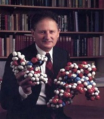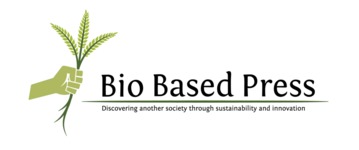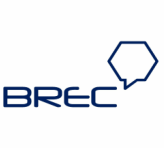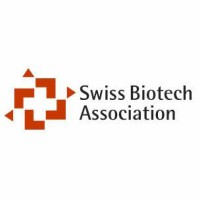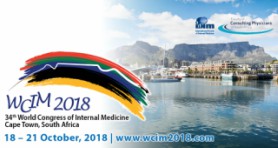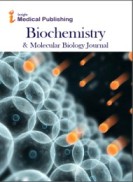Theme: Novel advancements in Enzymology & Molecular Biology
Enzymology Congress 2019
About Conference
Our Organization is overwhelmed to host the upcoming 4th International Conference on Enzymology & Molecular Biology conference which is to be held in Tokyo, Japan during May 10-11, 2019.
Special interest and theme of the conference is “Novel Advancements in Enzymology and Molecular Biology”.
The broad subject coverage of the Conference and its size provide an excellent setting for participants to gain valuable insight into progress in research areas beyond their own. In addition a range of special sessions aims to engage participants on broader issues such as teaching in the enzymology and molecular biology research.
Enzymology Conference 2019 has a strong emphasis on support and inspiration for the next generation of scientists, along with early-career researchers, a Young Researchers Forum, and activities to encourage interaction with peers and experts.
Altogether Enzymology Conference 2019 aims to be an extraordinary cross discipline gathering in the enzymology life sciences for research presentations, discussions, learnings, inspirations and encouragement with participants leaving with new research knowledge and ideas, and perhaps the beginnings of international collaborations and associations.
Enzymology
The study of enzymes will properly deals with plant or animal life. It is, therefore, encountered in organic chemistry, medicine, biology, clinical drugs, plant physiology and other alternative sciences.
Enzymology congress 2019 mainly emphasizes on methods such as Biochemical processes, Bio molecular engineering, Immunoassays for protein detection, Mass spectroscopy & protein profiling, Membrane-lipid therapy and Polyunsaturated fatty acids (PUFA).
- Physiological Enzymology
- Structural Enzymology
- Functional Enzymology
- Enzyme Strategies
Track-1: Enzymology & Biochemistry
Enzymes are both macromolecular and micromolecular proteins and are found naturally. They are macromolecular biological catalysts and accelerate chemical reactions. Enzymology deals with the study of enzymes, their kinetics, structure, and function, as well as their relation to each other. Enzymes play a very important role in the world. They act as a catalyst for a chemical reaction, whether that reaction involves the execution of DNA for the purpose of cell repair or for the digestion of any types of meat as well as poultry. Biochemistry is the branch of science which deals with the chemical processes within and related to living organisms. It is a laboratory based science that combines both biology and chemistry. Biochemistry mainly focuses on processes that happen at a molecular level like inside our cells, studying components like proteins, lipids and organelles. It also looks at how cells communicate with each other. Biochemists should understand how the molecular structure relates to its function, and then allow them to predict that how the molecules will interact. Biochemistry covers a range of scientific disciplines, which includes genetics, microbiology, forensics, plant science and medicine.
Relevant Conferences
2nd International Conference on Molecular Biology , Nucleic Acids & Molecular Medicine, PHILADELPHIA, PENNSYLVANIA, USA on August 31- September 01. 2017. 9th International Conference on Structural Biology, ZURICH, SWITZERLAND on September 18-20, 2017. 2nd International Conference on Biochemistry, DUBAI, UAE on September 28-29, 2017. 10th International Conference and Exhibition on Metabolomics, BALTIMORE, USA on October 19-20, 2017. 9th International Conference and Expo on Proteomics, PARIS, FRANCE on November 13-15, 2017.
Track-2: Molecular Enzymology
Molecular enzymology is that branch of biochemistry which encircles or deals with the functional as well as the structural characteristics of the enzymes within a molecular level. Enzymes are globular proteins which play a very important role as a catalyst for any type of biochemical reactions. Molecular enzymology is based on designing and enzyme synthesis and high unmet medical needs are based on innovative drug targets. These works are based on innovative drug targets. Molecular Enzymology's interest include in all aspects related to enzymes like discovery of enzymes, structure of enzymes, enzyme mechanisms, cellular and metabolic functions of enzymes, discovery of drugs, biochemical aspects of enzymes, bioinformatics, computational analysis, studies for molecular modeling, newer methods in enzyme expression as well as purification, bio catalysis, bio molecular engineering, enzyme kinetics and enzyme inhibitors.
Relevant Conferences
3rd International Conference on Genetic and Protein Engineering, LAS VEGAS, USA on November 08-09, 2017. 3rd International Conference on Transcriptomics, BANGKOK, THAILAND on October 30 - November 01, 2017. 9th International Conference on Bioinformatics, PARIS, FRANCE on November 13-14, 2017. December 11-12, 2017. 10th International Conference on Proteomics and Bioinformatics, DUBAI, UAE, on April 23-24, 2018. 2nd International Molecular Medicine and Diagnostics Conferences, DUBAI,UAE on May 17-19,2018. 4th World Congress On Protein and Bio-Medical Engineering, SINGAPORE, on July 16-18, 2018. 4th International Conference on Glycobiology and Glycochemistry, MELBOURNE, AUSTRALIA,
Track-3: Clinical Enzymology
Clinical enzymology deals with the measurement of enzyme activity for the diagnosis and treatment of diseases. Enzymes are macromolecular catalysts which increase the rate or velocity of physiologic reactions. Each and every reaction occurring daily in our body takes place with the help of an enzyme or the other. In general, most of the enzymes are present in cells at much higher concentrations than that in plasma. Measurement of these levels in plasma indicates whether their tissue of origin is damaged causing to the release of intracellular components into the blood. This forms the basis of what is called clinical enzymology. Thus we can say that clinical enzymology refers to measurement of enzyme activity for the diagnosis as well as the treatment of diseases.
Relevant Conferences
9th International Conference on Structural Biology, ZURICH, SWITZERLAND on September 18-20, 2017. International Conference on Glycobiology, HOUSTON, TEXAS, USA on September 21-22, 2017. 2nd International Conference on Biochemistry, DUBAI, UAE on September 21-22, 2017. 10th International Conference and Exhibition on Metabolomics, BALTIMORE, USA on October 19-20, 2017. Global Proteomics Conference, DUBAI, UAE on October 25-26, 2017.
Track-4: Structural Enzymology
Enzymes are the group of proteins which process cellular metabolism. They can affect a reaction either by catalyzing or they can be used to reverse the reactions in bio-chemical pathways. Though enzymes have complex enzymatic structures, they undergo many changes which is very important for reactions and so enzyme structure is very much essential. There is always a specific enzyme for specific reaction i.e., reactions are enzyme specific in nature. Enzymes structures are made up of a special type of amino acids i.e., α amino acids which are linked together via an amide (peptide) bond in a linear chain. This is the primary structure and the resulting amino acid chain is called a polypeptide chain or rather a protein.
Relevant Conferences
2nd International Conference on Nucleic Acids, Molecular Biology & Biologics , August 31-September 01, 2017 Philadelphia, USA; International Conference on Computational and Structural Biotechnology, Amsterdam on Aug 07-08, 2017; International Conference on Computational Biology and Bioinformatics, Paris on Aug 28-29, 2017; The 31st Symposium of The Protein Society, July 24-27, 2017 Montreal, Canada; The 13th PEGS Boston May 1-5, 2017, Seaport World Trade Center; 19th International Conference on Protein and Proteomics November 24 - 25, 2017, Dubai, UAE; 22nd Annual Lorne Proteomics Symposium, February 2-5,2017, Victoria , Australia
Track 5: Soil Enzymology
Enzymes are the vital activators in life processes, likewise in the soil they are known to play a substantial role in maintaining soil health and its environment. Soil enzymes are critically important to the functioning of the soil. Soil enzymes are the product of soil microorganisms and are the drivers for biogeochemical cycling in soils. Soil enzymes are also involved in remediation of contaminated soils. As a result, soil enzymes have been considered indicators for soil ecosystem health. The enzymatic activity in the soil is mainly of microbial origin, being derived from intracellular, cell-associated or free enzymes. Deterioration of soil, and thereby soil health, is of concern for human, animal, and plant health because air, groundwater, and surface water consumed by humans, can be adversely affected by mismanaged and contaminated soil.
Relevant Conferences
Fourth International Conference on Enzymes in the Environment: Activity, Ecology & Applications, Bangor, Wales, 24-28 July, 2016.
Track 6: Enzyme Kinetics
Enzyme kinetics deals with the study of the chemical reactions that are catalyzed mainly by the enzymes. In enzyme kinetics, the rates of the reaction are measured and the effects of varying the conditions of the reaction are studied. Studying the kinetics of an enzyme in this way can reveal the catalytic mechanism of that particular enzyme as well as its role in metabolism, how its activity is being controlled, and how a drug might inhibit that enzyme.
Relevant Conferences
2nd International Conference on Molecular Biology , Nucleic Acids & Molecular Medicine, PHILADELPHIA, PENNSYLVANIA, USA on August 31- September 01. 2017. 9th International Conference on Structural Biology, ZURICH, SWITZERLAND on September 18-20, 2017. 2nd International Conference on Biochemistry, DUBAI, UAE on September 28-29, 2017. 10th International Conference and Exhibition on Metabolomics, BALTIMORE, USA on October 19-20, 2017. 9th International Conference and Expo on Proteomics, PARIS, FRANCE on November 13-15, 2017.
Track-7 Enzymology in Drug Discovery
Enzymes are the macromolecular and micromolecular proteins in the drug design that act as drug targets for the diseases in the process of discovery of drugs as well as its development. There are several drug targets which are involved in the designing of the drugs. Drug target is a nucleic acid or a protein whose activity can be modified by a drug itself. The drug can be a chemical compound with a small molecular weight or a biological compound, such as an antibody or a recombinant protein. The drug target should be effective in the disease by relevant in vitro or in vivo models and analysis.
Relevant Conferences
3rd International Conference on Genetic and Protein Engineering, LAS VEGAS, USA on November 08-09, 2017. 3rd International Conference on Transcriptomics, BANGKOK, THAILAND on October 30 - November 01, 2017. 9th International Conference on Bioinformatics, PARIS, FRANCE on November 13-14, 2017. December 11-12, 2017. 10th International Conference on Proteomics and Bioinformatics, DUBAI, UAE, on April 23-24, 2018. 2nd International Molecular Medicine and Diagnostics Conferences, DUBAI,UAE on May 17-19,2018. 4th World Congress On Protein and Bio-Medical Engineering, SINGAPORE, on July 16-18, 2018. 4th International Conference on Glycobiology and Glycochemistry, MELBOURNE, AUSTRALIA,
Track 8: Enzyme Toxicology
Enzyme Toxicology is unremarkable, except the potential irritating effects usually associated with some proteases at high concentrations, and the allergic effects of enzymes. Like anything one is exposed to, the dose makes the poison; thus, with certain enzymes, a sufficient excess in exposure can lead to irritation. Enzymes are like the majority of food proteins so that oral exposure to the gut is entirely without effect, except perhaps at very high, unrealistic, exposure levels
Enzymes have been evaluated for genotoxic effects Nevertheless, enzymes are not mutagenic in the standard screening assays used in genetic toxicology, specifically the Ames test, and are not clastogenic in chromosome aberration tests. Repeated exposure studies on a number of enzymes have been completed. Most often this has been done in relation to enzymes to be used in foodstuffs and so exposure has been carried out via the oral route.
Relevant Conferences:
International Conference on Toxicology and Pharmacology, ONTARIO, CANADA on November 1-2, 2017.
Track-9: Enzymology & Proteomics
Proteomics is the large-scale study related to proteins, mainly their structures and functions. Proteins are the vital parts of all the living organisms, as they form the main components of the physiological metabolic pathways of the cells. The term proteomics was first coined in the year of 1997 to make an analogy with the term genomics, which again deals with the study of the genome. The word proteome is a combination of protein and genome together. The proteome can be said as the entire set of proteins, which are produced or modified by an organism or a system.
Relevant Conferences
9th International Conference on Structural Biology, ZURICH, SWITZERLAND on September 18-20, 2017. International Conference on Glycobiology, HOUSTON, TEXAS, USA on September 21-22, 2017. 2nd International Conference on Biochemistry, DUBAI, UAE on September 21-22, 2017. 10th International Conference and Exhibition on Metabolomics, BALTIMORE, USA on October 19-20, 2017. Global Proteomics Conference, DUBAI, UAE on October 25-26, 2017.
Track-10: Computational Enzymology
Molecular simulations and modelling means altering the science of enzymology. Computational enzymology is a rapidly developing area, and is studying the theories of catalysis, challenging 'textbook' mechanisms, and also identifying the novel catalytic mechanisms. Also increasingly, modelling is contributing directly towards the experimental studies of the enzyme-catalysed reactions. Potential practical applications in this area include interpretation of the experimental datas, catalyst design and also drug development.
Relevant Conferences
9th International Conference on Structural Biology, ZURICH, SWITZERLAND on September 18-20, 2017. International Conference on Glycobiology, HOUSTON, TEXAS, USA on September 21-22, 2017. 2nd International Conference on Biochemistry, DUBAI, UAE on September 21-22, 2017. 10th International Conference and Exhibition on Metabolomics, BALTIMORE, USA on October 19-20, 2017. Global Proteomics Conference, DUBAI, UAE on October 25-26, 2017.
Track 11: Enzyme Nanotechnology
The nanomaterials possess ideal characteristics to equilibrate principal factors which determine biocatalysts efficiency, including specific surface area, mass transfer resistance and effective enzyme loading. This review presents the current scenario and techniques in enzyme immobilization. Some methods are used which are efficient to combine proteins/enzymes with nanoparticles. Immobilization process is to optimize the operational performance of an enzyme for industrial applications. So far different matrices have been described in the literature to improve the performance of the immobilized enzymes. With the advent of nanotechnology, the nanomaterials because of their unique physico-chemical properties constitute novel and interesting matrices for enzyme immobilization.
- Enzyme nanoparticles
- DNA nanotechnology
- Nanotechnology products
- DNA microarray
- Nanopolymers
- Nanotechnology in targeted drug delivery
- Immobilization using nanoparticles
Track-12: Industrial Applications of Enzymology
Enzymes are used nowadays in chemical industries and for some industrial purposes where extremely specific catalysts are required for industrial uses. Enzymes in general are rare in number of reactions they have evolved to catalyse and also by the lack of stability in organic solvents and at very high temperatures. Thus, protein engineering is an active an advanced area of research which includes attempts for creating new enzymes with novel properties. These efforts have begun to be successful, and a few enzymes have now been designed to catalyse reactions that do not occur naturally. Enzymes are usually macromolecular and micromolecular protein molecules that manipulate the other molecules i.e., the enzymes substrates. These target molecules binds up to the active site of an enzyme and are thus converted into products via a series of steps which are combined known as the enzymatic mechanism.
Relevant Conferences
3rd International Conference on Genetic and Protein Engineering, LAS VEGAS, USA on November 08-09, 2017. 3rd International Conference on Transcriptomics, BANGKOK, THAILAND on October 30 - November 01, 2017. 9th International Conference on Bioinformatics, PARIS, FRANCE on November 13-14, 2017. December 11-12, 2017. 10th International Conference on Proteomics and Bioinformatics, DUBAI, UAE, on April 23-24, 2018. 2nd International Molecular Medicine and Diagnostics Conferences, DUBAI,UAE on May 17-19,2018. 4th World Congress On Protein and Bio-Medical Engineering, SINGAPORE, on July 16-18, 2018. 4th International Conference on Glycobiology and Glycochemistry, MELBOURNE, AUSTRALIA,
Track-13: Enzymology & Thermodynamics
In the presence of an enzyme, the reaction runs in the same direction as it would run without an enzyme, but just more quickly. The reaction rate is dependent on the activation energy which is needed to form the transition state which then transforms into products. Enzymes increase the reaction rates by decreasing the transition state energy. First, binding forms an enzyme-substrate complex (ES) with low energy. Secondly the transition state is stabilized by the enzyme such that it requires lesser energy to achieve compared to the uncatalyzed reaction (ES‡). Finally the enzyme-product complex (EP) gets dissociated to release the products.
Relevant Conferences
EuroSciCon Conference on Chemistry, PARIS, FRANCE on February 19-20, 2018. 3rd International Conference on Lipid Science & Technology, ROME, ITALY on December 11-12, 2017. 10th Edition of International Conference on Structural Biology, BARCELONA, SPAIN, on March 15-17, 2018. 11th Edition of International Conference on Proteomics, LONDON, UK, on March 22-23, 2018. 2nd International Molecular Medicine and Diagnostics Conferences, DUBAI,UAE on April 23-24, 2018. 10th International Conference on Proteomics and Bioinformatics, DUBAI, UAE on April 09-11, 2018.
Track-14: Enzymology in Food Processing & Technology
Food enzymology deals with all the aspects of the enzymology which are related to the food systems. The basic aspects of the food enzymology are the methods for measuring the enzyme activities; extraction of the enzymes from microbial, plant and animal systems; methods of purification of enzyme as well as its characterization; and regulation of enzymatic activities by activators, inhibitors, and via covalent modification.
Relevant Conferences
2nd International Conference on Molecular Biology , Nucleic Acids & Molecular Medicine, PHILADELPHIA, PENNSYLVANIA, USA on August 31- September 01. 2017. 9th International Conference on Structural Biology, ZURICH, SWITZERLAND on September 18-20, 2017. 2nd International Conference on Biochemistry, DUBAI, UAE on September 28-29, 2017. 10th International Conference and Exhibition on Metabolomics, BALTIMORE, USA on October 19-20, 2017. 9th International Conference and Expo on Proteomics, PARIS, FRANCE on November 13-15, 2017.
Track 15: Lipid and Lipoprotein Metabolism
The total cost of decreasing low-density lipoprotein generally includes the costs of physician services, case finding and monitoring, dietary and exercise modifications, medications, and also treating the side effects. The cost of treatment-related appointments follow-up or varies by type of provider, location, and practice setting. The annual cost of statin drugs to reduce low-density lipoprotein cholesterol levels can range from $1,082 to $1,543 per year. Although the cost of decreasing the low-density lipoprotein cholesterol levels can be high, but it is much lower than the direct and indirect costs of cardiovascular disease research.
Relevant Conferences:
9th International Conference on Structural Biology, ZURICH, SWITZERLAND on September 18-20, 2017. International Conference on Glycobiology, HOUSTON, TEXAS, USA on September 21-22, 2017. 2nd International Conference on Biochemistry, DUBAI, UAE on September 21-22, 2017. 10th International Conference and Exhibition on Metabolomics, BALTIMORE, USA on October 19-20, 2017. Global Proteomics Conference, DUBAI, UAE on October 25-26, 2017.
Track 16: Genomics
Genomics is a domain of science that specialize in the structure, function, evolution, mapping, and redaction of genomes. An ordering is an organism's complete set of DNAs, as well as all of its genes. In distinction to biology, that refers to the study of individual genes and their roles in inheritance, genetics aims at the collective characterization and quantification of genes, that direct the assembly of proteins with the help of enzymes and traveler molecules. In turn, proteins compose body structures comparable to organs and tissues still as management chemical reactions and carry signals between cells. Genetics conjointly involves the sequencing and analysis of genomes through uses of high turnout DNA sequencing and bioinformatics to assemble and analyze the perform and structure of entire genomes. Advances in genetics have triggered a revolution in discovery-based analysis and systems biology to facilitate understanding of even the foremost advanced biological systems comparable to the brain.
Track 17: Molecular Genetics
The term biology| genetics. genetic science is currently redundant as a result of up to date genetics is totally molecular. biology isn't created of 2 sciences, one molecular and one non-molecular. all the same, active biologists still use the term. once they do, they're usually concerning a collection of laboratory techniques geared toward distinctive and/or manipulating polymer segments concerned within the synthesis of necessary biological molecules. Scientists typically speak and write of the applying of those techniques across a broad swath of medicine science. For them, genetic science is associate fact-finding approach that involves the applying of laboratory ways and analysis ways. This approach presupposes basic data regarding the expression and regulation of genes at the molecular level
Our Conference will provide a perfect platform addressing:
Laudable talks by the top-notch of the global scientific community
Sterling workshop sessions
Remarkable Awards and Global Recognition to meritorious Researchers
Global Networking with 50+ Countries
Novel Techniques to Benefit Your Research
Global Business and Networking Opportunities
Exquisite Platform for showcasing your products and International Sponsorship
Summary:
Enzymology implies the study of enzymes and their structures. The reports in this section analyses the global enzymology market by application, equipment, tools, methodologies, software, and services. The application segments for instance hold the markets for enzymology-based diagnosis & therapy; while the equipment segment covers markets for technologies such as microarrays, Ultrasonic processing, and Gel electrophoresis. Drug discovery forms the highest revenue-generating application market of enzymology. These reports show us the latest forecasted revenues of all the market segments and provide the exhaustive analyses of current trends, market, growth strategies, and opportunities that are adopted by the key market players.
Importance & Scope:
Enzymology is a new technology that is growing rapidly due to its higher applications in a lot of fields and due to having bright and clear future vision. A most exciting development over the last years is the application of genetic engineering techniques in enzymology. There are several properties which may be improved by genetic engineering including the kinetics of the enzyme the ease of downstream processing & various safety aspects. New enzyme structures can be designed and then produced in order to improve on existing enzymes or create new activities. Many numbers of possibilities now came in form for construction of the artificial enzymes, these are generally synthetic polymers or oligomers with enzyme-like activities, often called synzymes. Enzymes can be immobilized which means an enzyme can be linked to an inert support material without any loss of activity which facilitates reuse and recycling of the enzyme. Use of engineered enzyme to form biosensor for analytical use is also a recent activity taking place among the developed countries.
Why Tokyo?
Tokyo is Japan’s capital and the largest metropolitan area in the world. It is also one of Japan’s 47 prefectures, consisting of 23 central city wards and multiple cities, towns and villages west of the city center. The Izu and Ogasawara Islands are also part of Tokyo. Prior to 1868, Tokyo was known as Edo. A small castle town in the 16th century, Edo became Japan’s political center in 1603 when Tokugawa Ieyasu established his feudal government there. A few decades later, Edo had grown into one of the world’s most populous cities.
The city’s history can be appreciated in districts such as Asakusa, and in many excellent museums, historic temples and gardens. Contrary to common perception, Tokyo also offers a number of attractive green spaces in the city centre and within relatively short train rides at its outskirts.
Why to attend?
Meet your target market with recent business reports on structural biology and drug designing making news which manifests the tremendous growth in market value for pharmaceutical industry. Since structural biology focuses on structure determination through Enzymology & Biochemistry, Molecular Enzymology, Clinical Enzymology, Structural Enzymology, Soil Enzymology, Enzyme Kinetics, Enzymology in Drug Discovery, Enzyme Toxicology, Enzymology & Proteomics, Computational Enzymology, Enzyme Nanotechnology, Molecular Genetics through various software, it would be a great opportunity for companies dealing with analytical instruments and software useful in these fields.
Conference Highlights:
Enzymology & Biochemistry
Molecular Enzymology
Clinical Enzymology
Structural Enzymology
Enzymology in Drug Discovery
Enzyme Toxicology
Enzymology & Proteomics
Computational Enzymology
Enzyme Nanotechnology
Industrial Applications of Enzymology
Enzymology & Thermodynamics
Enzymology in Food Processing
Lipid Metabolism
Genomics
Molecular Genetics
List of major Enzymology Related Societies:
American Society for Biochemistry and Molecular Biology (ASBMB)
Association for Clinical Biochemistry (ACB)
Society for Integrative and Comparative Biology (SICB)
Canadian Society of Clinical Chemists (CSCC)
Society of Medical Biochemists of Serbia
Federation of European Biochemical Societies (FEBS)
American Chemical Society (ACS)
Clinical Laboratory and Analytical Sciences (CLAS)
Biochemical Society
Signal Transduction Society
Canadian Society for Chemistry (CSC)
International Society for Antiviral Research (ISAR)
Cell Stress Society International (CSSI)
European Society of Gene and Cell Therapy (ESGCT)
Japan Society of Gene Therapy (JSGT)
Korean Society of Gene and Cell Therapy (KSGT)
European Tissue Repair Society (ETRS)
Target Audience:
Directors/Managers & Business Delegates, Director of Laboratories, Universities, Industries, Investigators, Post-Doctoral Fellows, Research and Diagnostic Laboratories, Clinical Fellows, Students, Biomedical Research companies.
Rise in the number of clinical trials, toxicological studies, and health awareness for nutritional products, rapid growth of enzymology data analysis software and solutions, and use of enzymology as diagnostics tool for biomarker screening of diseases is expected to propel the growth of this market.
Glance on Market of Enzymology:
The market for food enzymes is projected to reach USD 2.94 Billion by 2021, at a CAGR of about 7.4% from 2016. This market is fuelled by the growing awareness among consumers toward the health and nutritional benefits of food enzymes and the growth of end-use applications of food enzymes in the food and beverage industry.
The key players in the market are BASF SE (Germany), E.I. du Pont de Nemours and Company (U.S.), Associated British Foods plc (U.K.), Koninklijke DSM N.V (The Netherlands), and Novozymes A/S (Germany) among others. The industrial enzymes market was valued at USD 4.2 Billion in 2014 and is projected to grow at a CAGR of 7.0% from 2015 to 2020. In 2014, the market was dominated by North America. The Asia-Pacific region is projected to grow at the highest CAGR from 2015 to 2020.
Statistics of Industries Associated With Enzymology:
The global enzymes market size was USD 8.18 billion in 2015 and is expected to witness significant growth over the next eight years on account of its increasing application in detergents, pharmaceuticals, and food & beverages.
Enzymes market is projected to show high gains considering its extensive usage in food processing, germination in breweries, pre-digestion of baby food, fruit juice clarification, meat tenderization, cheese manufacturing, and conversion of starch into glucose. Also, favorable government policies by the U.S., Austria, France, Germany, Italy and Sweden to promote biodiesel production will fuel demand over the next eight years.
Scope Of The Study:
The scope of enzymology has expanded rapidly over the last century, from an early focus on the chemical and catalytic mechanisms of individual enzymes to more recent efforts to understand enzyme action in the context of dynamic, functional biological systems consisting of many interacting enzymes and proteins. Continuing progress in probing the link between molecular structure and function now promises to pave the way for a deeper understanding of the evolution and behaviour of the complex biological systems that govern cellular behaviour.
Remarkable progress in chemistry and biology over the last century has provided deep insights into two fundamental questions: how do molecular components give rise to functioning biological systems, and how do complex biological systems evolve? We now have, in mechanistic detail, a considerable understanding of how biological macromolecules control growth, metabolism, signalling and other biological processes at the level of individual components, while sequence and structural comparisons have revealed the molecular-level changes that distinguish evolutionarily related macromolecules.
The 2nd International Conference on Enzymology and Molecular Biology was held in Rome, Italy, during March 20-21, 2017.
The 2nd International Conference and Expo on Lipids: Metabolism, Nutrition & Health was held at Orlando, USA during 03-05 October, 2016.
Enzymology 2017 witnessed an amalgamation of peerless speakers who enlightened the crowd with their knowledge and confabulated on various new-fangled topics related to the field of structural biology and biophysics. The highly exalted conference hosted by Conference Series was marked with the attendance of renowned and brilliant researchers, business delegates and talented student communities representing more than 20 countries around the world. The conference has tried grounding every aspect related to Structural Biology and Biophysics, covering all the possible research areas and crux.
The conference aimed a parallel rail with theme “Exemplifying the Prominence of Enzymology among Interdisciplinary Sciences”. The meeting engrossed a vicinity of cognizant discussions on novel subjects like Enzymology & Biochemistry, Enzyme Kinetics, Clinical Enzymology, Structural Enzymology, Molecular Enzymology, Recombinant DNA Technology, Epigenetics, Enzymology in Drug Discovery, Computational Enzymology, Industrial Applications of Enzymology, Enzymology & Thermodynamics, Industrial fermentation processes for enzymes, Enzymology in Food Processing & Technology and Enzymology Case Study.. The two days event implanted a firm relation of upcoming strategies in the field of Structural Biology with the scientific community. The conceptual and applicable knowledge shared, will also foster organizational collaborations to nurture scientific accelerations.
The conference aimed a parallel rail with theme “Solving the Impetus of Innovations in Lipid World”. The meeting engrossed a vicinity of cognizant discussions on novel subjects like Lipid and Lipid Metabolism, Lipids in Molecular Medicine, Structural Diversity of Lipids, Lipids in Signaling and Intracellular Trafficking, Lipids: Nutrition and Health to mention a few. The three days event implanted a firm relation of upcoming strategies in the field of Lipids, Metabolism, Signalling and Intracellular Trafficking with the scientific community. The conceptual and applicable knowledge shared, will also foster organizational collaborations to nurture scientific accelerations.
We are thankful to all our speakers for encouraging and supporting us to conduct the conference and catapulting the same to pinnacle of success.
The Organizing Committee would like to thank the moderators Dr. Marica Bakovic, University of Guelph, Canada and Dr. Cherryhan Salvedia, Misr International University, Egypt which resulted in smooth functioning of the conference.
The conference was embarked with an opening ceremony followed by a series of lectures delivered by both Honourable Guests and members of the Keynote forum. The highlights of the conference were the keynote forum by prominent scientists, T Colin Campbell, Cornell University and T. Colin Campbell Center for Nutrition Studies, USA; Edward A Dennis, University of California at San Diego, USA; Charles Hennekens, Charles E Schmidt College of Medicine, USA; Raj Lakshman, George Washington University, USA; gave their fruitful contributions in the form of highly informative presentations and made the conference a top notch one.
Conference Series is prerogative to thank the Organizing Committee Members, Keynote speakers, Chair and Co-chairs on transcribing the plenary sessions and workshops in a diversified and variegate manner to make this conference an enviable artefact.
Conference Series, on behalf of the conference, congratulates the Best poster awardees for their outstanding performance in the field of Enzymology and also Lipid science and appreciates all the participants who put their efforts in poster presentations and sincerely wishes them success in future endeavours.
After the successful completion of two consecutive conferences we are overwhelmed to announce our next upcoming conferences which are going to be held in Europe “3rd International Conference on Lipid Science and Technology” which is going to be held during December 11-13, 2017 in Rome, Italy.
Let us meet again @ Enzymology Congress 2019
Conference Highlights
- Enzymology & Biochemistry
- Molecular Enzymology
- Clinical Enzymology
- Structural Enzymology
- Enzyme Kinetics
- Enzymology in Drug Discovery
- Enzymology & Proteomics
- Computational Enzymology
- Industrial Applications of Enzymology
- Enzymology & Thermodynamics
- Enzymology in Food Processing & Technology
- Lipid and Lipoprotein Metabolism
- Soil Enzymology
- Enzyme Toxicology
- Enzyme Nanotechnology
- Genomics
- Molecular Genetics
To share your views and research, please click here to register for the Conference.
To Collaborate Scientific Professionals around the World
| Conference Date | May 10-11, 2019 | ||
| Sponsors & Exhibitors |
|
||
| Speaker Opportunity Closed | Day 1 | Day 2 | |
| Poster Opportunity Closed | Click Here to View | ||
Useful Links
Special Issues
All accepted abstracts will be published in respective Our International Journals.
- Biochemistry & Analytical Biochemistry
- Biochemistry & Molecular Biology
- Journal of Glycomics& Lipidomics
Abstracts will be provided with Digital Object Identifier by







